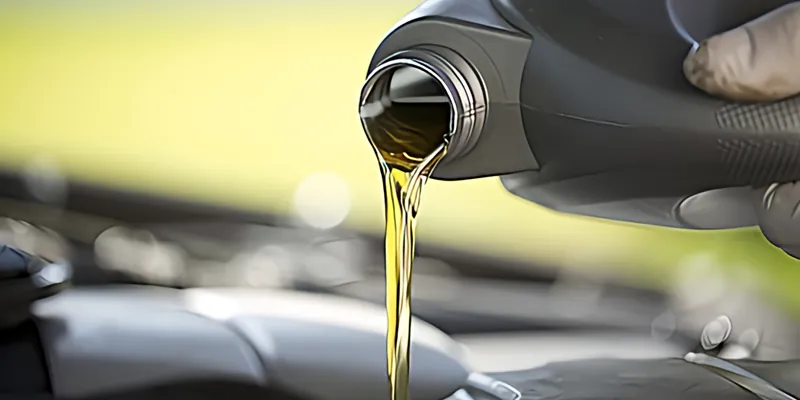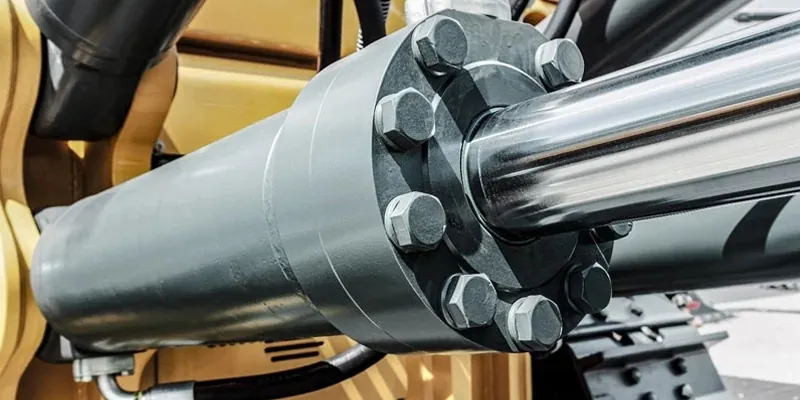Protecting Your Industrial Workhorse: Essential Tips for Hydraulic Oil Health
Keeping Your Hydraulic Systems Running Smoothly
hydraulic systems are the lifeblood of countless industrial machines, from excavators to factory robots.
For these systems to function flawlessly and last a long time, clean and high-performing hydraulic oil is essential.
This article dives into the five main culprits behind hydraulic oil degradation and explores preventive measures to keep your systems running smoothly.

5 Threats to Hydraulic Oil
Water Contamination:
Even a tiny amount of water can wreak havoc on your hydraulic system.
Studies show that just 1% water contamination can halve the lifespan of hydraulic pump bearings and hinder pump performance.
Water not only accelerates internal corrosion but also alters the oil's properties, hindering its lubrication and other key functions.
Since oil and water don't mix, when pressure and movement are introduced, water can foam and cavitate,
dramatically increasing friction and rapidly wearing down components like seals and pistons.
Water infiltration can occur through condensation, worn seals, or improper handling during oil changes.
Regular oil analysis and strict maintenance procedures during oil changes are crucial to monitor and remove water contamination.
Particulate Contamination:
Dirt, debris, metal shavings - these and other tiny particles accumulate in your hydraulic system over time, jeopardizing its performance.
These particles can be metal slivers caused by cavitation or dirt introduced during maintenance.
Eventually, they infiltrate seals, wear down bearings, jam valves, scratch pistons, and damage other components prone to wear.
Particulate contamination is arguably the most destructive type and a leading cause of hydraulic system failure.
Studies suggest that over 80% of Hydraulic component wear is directly linked to increased particulate levels in the oil.
While particulates naturally accumulate through use, hydraulic systems employ filters to combat this issue.
Overheating:
When hydraulic oil gets too hot, its ability to prevent friction diminishes, significantly accelerating wear and reducing component lifespan.
High temperatures cause varnish formation in the oil, reducing lubrication and increasing viscosity.
Additionally, extreme heat breaks down the fluid through oxidation, producing acids that corrode metal parts.
Exceeding recommended operating temperatures also deteriorates oil additives, potentially increasing friction and wear while reducing corrosion resistance.
Flow restriction and excessive flow are common culprits behind overheating oil.
Flow restriction often occurs due to undersized system piping or the use of flow control valves.
Incorrectly sized fluid conductors can cause excessive flow velocities, accelerating fluid flow.
Hydraulic Equipment prone to overheating may require more frequent oil changes.
Aeration:
Air leaks, typically through seals and fittings, or improper maintenance practices can introduce air into the system.
When air enters the hydraulic fluid, it exists in four states with varying properties and effects: dissolved, entrained (bubbles), free, and foam.
While each state has different impacts, aeration ultimately accelerates fluid degradation and damages system components due to lubrication loss,
overheating, and seal wear. It can also lead to cavitation, sluggish hydraulic response, and loss of system control.
Cavitation:
Unlike aeration, cavitation doesn't involve external air intrusion. It refers to the formation of vapor cavities within the hydraulic fluid.
Cavitation occurs when the fluid volume is insufficient for the demands of the hydraulic circuit, causing the pressure to drop below the vapor pressure of the oil.
This results in the formation of vaporized fluid bubbles that rapidly implode, generating powerful mini shockwaves.
These shockwaves not only reduce power but also severely damage the system's internals.
Over time, this condition erodes metallic surfaces through repeated mini-implosions,
leading to metal fatigue and the creation of metal particles that further contaminate the system.

Safeguarding Your Hydraulic Systems
Regular Hydraulic Oil Filtration:
Implement a routine for inspecting and replacing hydraulic oil filters.
This removes particulate contamination, the leading cause of wear and tear in hydraulic systems.
Using Clean Hydraulic Oil:
Always use the correct hydraulic oil type and grade recommended by the manufacturer.
Clean, fresh oil ensures proper lubrication, minimizes friction, and protects components from corrosion.
Regular Hydraulic Oil Testing:
Perform regular oil analysis to monitor contamination levels, track oil degradation, and identify potential problems early on.
Clean oil analysis allows you to schedule oil changes and maintenance procedures proactively, extending the lifespan of your hydraulic systems.
Leak Inspection:
Regularly inspect the system for leaks and promptly repair any faulty seals or components.
Leaks can introduce contaminants and contribute to oil loss, affecting system performance.
By implementing these preventive measures, you can ensure your hydraulic systems operate with clean oil, proper filtration, and optimal performance for years to come.
This not only extends the lifespan of your equipment but also reduces maintenance costs and downtime.
Why Choose SAIVS™ as Your Supplier?
With 20 years of industry experience, SAIVS is a leading Chinese manufacturer of high-quality tools, offering competitive pricing and excellent customer service.We pride ourselves on exceptional quality control, extensive experience, and comprehensive after-sales service.